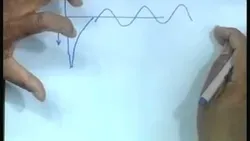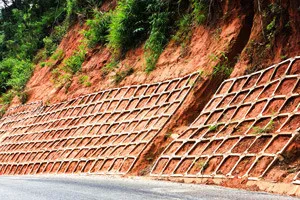
Ocean - Seakeeping & Manoeuvring 
This course provides an introduction to the principles of ocean seakeeping and manoeuvring. It covers topics such as regular and irregular water waves, ship motions, dynamic effects, added resistance, types of directional stability, hydrodynamic derivatives, standard manoeuvres, control surface and control derivatives. Through this course, students will gain knowledge and skills to understand and apply the principles of ocean seakeeping and manoeuvring. ▼
ADVERTISEMENT
Course Feature
![]() Cost:
Cost:
Free
![]() Provider:
Provider:
Youtube
![]() Certificate:
Certificate:
Paid Certification
![]() Language:
Language:
English
![]() Start Date:
Start Date:
On-Demand
Course Overview
❗The content presented here is sourced directly from Youtube platform. For comprehensive course details, including enrollment information, simply click on the 'Go to class' link on our website.
Updated in [May 25th, 2023]
This course, Ocean - Seakeeping & Manoeuvring, provides an overview of the principles of seakeeping and manoeuvring. It covers topics such as regular water waves, single degree of freedom motions in regular waves, uncoupled heave, pitch and roll motions, coupled heave and pitch motions, irregular waves, ship motions in 2D irregular waves, short-crested sea, ship motions in 3D irregular waves, dynamic effects, added resistance in waves, roll stabilization, types of directional stability, linear equations of motions in horizontal plane, hydrodynamic derivatives, stability index, standard manoeuvres, turning circle, zigzag, pullout and spiral manoeuvres, roll during turn, experimental determination of hydrodynamic derivatives, straight-line, rotating arm and PMM experiments, and description of control surface (rudder) and control derivatives.
[Applications]
Suggestions for the application of this course include using the knowledge gained to design ships with improved seakeeping and manoeuvring capabilities. This could involve using the information on regular and irregular waves to design ships that are better able to handle rough seas, as well as using the information on directional stability and hydrodynamic derivatives to design ships that are more manoeuvrable. Additionally, the information on control surfaces and control derivatives could be used to design ships with improved steering capabilities.
[Career Paths]
1. Naval Architect: Naval Architects are responsible for designing, constructing, and maintaining ships and other marine vessels. They must have a strong understanding of the principles of seakeeping and manoeuvring in order to ensure the safety and efficiency of the vessels they design. As the demand for more efficient and sustainable vessels increases, Naval Architects must stay up to date with the latest developments in the field.
2. Marine Engineer: Marine Engineers are responsible for the maintenance and repair of ships and other marine vessels. They must have a strong understanding of the principles of seakeeping and manoeuvring in order to ensure the safety and efficiency of the vessels they maintain. As the demand for more efficient and sustainable vessels increases, Marine Engineers must stay up to date with the latest developments in the field.
3. Ship Captain: Ship Captains are responsible for the safe and efficient operation of ships and other marine vessels. They must have a strong understanding of the principles of seakeeping and manoeuvring in order to ensure the safety and efficiency of the vessels they operate. As the demand for more efficient and sustainable vessels increases, Ship Captains must stay up to date with the latest developments in the field.
4. Marine Surveyor: Marine Surveyors are responsible for inspecting ships and other marine vessels for safety and compliance with regulations. They must have a strong understanding of the principles of seakeeping and manoeuvring in order to ensure the safety and efficiency of the vessels they inspect. As the demand for more efficient and sustainable vessels increases, Marine Surveyors must stay up to date with the latest developments in the field.
[Education Paths]
1. Marine Engineering: Marine engineering is a field of engineering that deals with the design, construction, and operation of ships, boats, and other marine vessels. It involves the application of engineering principles to the design and operation of ships and other marine vessels. This field is rapidly evolving due to advances in technology and the increasing demand for more efficient and reliable marine vessels. Developing trends in this field include the use of advanced materials, such as composites, and the development of more efficient propulsion systems.
2. Naval Architecture: Naval architecture is a field of engineering that deals with the design, construction, and operation of ships, boats, and other marine vessels. It involves the application of engineering principles to the design and operation of ships and other marine vessels. This field is rapidly evolving due to advances in technology and the increasing demand for more efficient and reliable marine vessels. Developing trends in this field include the use of advanced materials, such as composites, and the development of more efficient propulsion systems.
3. Oceanography: Oceanography is a field of science that studies the physical and biological aspects of the ocean. It involves the study of the ocean's physical characteristics, such as temperature, salinity, and currents, as well as its biological components, such as marine life and ecosystems. Developing trends in this field include the use of advanced technologies, such as remote sensing and autonomous underwater vehicles, to study the ocean in greater detail.
4. Marine Biology: Marine biology is a field of science that studies the biology of marine organisms, such as fish, invertebrates, and marine mammals. It involves the study of the structure, physiology, behavior, and ecology of these organisms. Developing trends in this field include the use of advanced technologies, such as genetic engineering and biotechnology, to study marine organisms in greater detail.
Course Provider

Provider Youtube's Stats at AZClass
Discussion and Reviews
0.0 (Based on 0 reviews)
Explore Similar Online Courses

Typography & Design

Game Theory and Economics

Python for Informatics: Exploring Information

Social Network Analysis

Introduction to Systematic Review and Meta-Analysis

The Analytics Edge

DCO042 - Python For Informatics

Causal Diagrams: Draw Your Assumptions Before Your Conclusions

Whole genome sequencing of bacterial genomes - tools and applications

Advanced Erosion Control Measures

Environmental Studies


Start your review of Ocean - Seakeeping & Manoeuvring